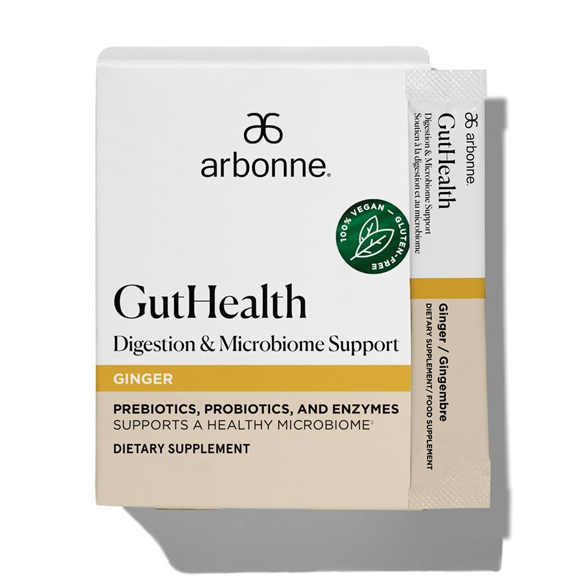Discover the Trick to Food Digestion and Resistance With Gut Health And Wellness Assistance

Understanding Digestive Tract Health And Wellness
Comprehending intestine health and wellness is critical for total wellness, as it plays a considerable role in digestion, resistance, and even mental health and wellness. The gut, comprising the stomach system, is responsible for damaging down food, taking in nutrients, and removing waste. A balanced digestive tract environment makes certain efficient digestion, enabling the body to make use of nutrients effectively.
Additionally, gut wellness considerably influences the immune system. The digestive tract houses a substantial section of the body's immune cells, and a healthy and balanced gut can help repel microorganisms and minimize inflammation. Interruptions in digestive tract health and wellness can bring about an over active immune action, potentially adding to autoimmune conditions and allergic reactions.
Furthermore, the intestine is typically referred to as the "2nd mind" because of the gut-brain axis, a complex interaction network linking the intestine and the mind. This link influences state of mind, cognition, and psychological wellness. Issues such as dysbiosis, characterized by an inequality in gut microorganisms, have actually been connected with mental health conditions, consisting of anxiety and anxiety.
The Intestine Microbiome Explained

The gut microbiome, a varied community of microorganisms residing in the intestinal tract, plays an essential function in preserving gastrointestinal health and wellness and general health. Consisting of trillions of bacteria, infections, fungis, and other germs, this complex ecosystem aids in the digestion of food, the synthesis of necessary nutrients, and the regulation of metabolic processes.
Each individual's digestive tract microbiome is one-of-a-kind, affected by factors such as diet regimen, way of living, genetics, and ecological exposures. A balanced microbiome supports optimum digestion by damaging down facility carbs, generating short-chain fatty acids, and assisting in the absorption of nutrients. Alternatively, a discrepancy, typically referred to as dysbiosis, can result in gastrointestinal conditions, including irritable digestive tract syndrome (IBS) and inflammatory digestive tract disease (IBD)
Research study has shown that a varied microbiome is related to far better health and wellness results, underscoring the value of nutritional options in supporting these microbes. Foods rich in fiber, probiotics, and prebiotics, such as fruits, vegetables, and fermented items, can advertise a healthy and balanced microbiome. Comprehending the intestine microbiome is important for developing targeted treatments focused on boosting digestive system wellness and preventing stomach conditions.

Link In Between Food Digestion and Immunity
A durable link exists in between digestion and resistance, highlighting the essential role of the digestive tract in keeping overall wellness. The intestinal tract is home to trillions of microorganisms that develop the digestive tract microbiome, which significantly affects both digestion procedures and immune actions. This complicated environment aids in damaging down food, soaking up nutrients, and giving vital metabolites that sustain immune feature.
When food digestion is effective, the gut obstacle stays undamaged, preventing dangerous virus from entering the blood stream (gut health supplement). Conversely, inadequate food digestion can lead to an inequality in the microbiome, leading to dysbiosis, which has been linked to different wellness concerns, including inflammatory conditions and autoimmune conditions. Approximately 70% of the immune system lives in the gut-associated lymphoid cells (GALT), which interacts closely with the intestine microbiome. This interplay makes sure that the immune system can successfully identify between harmful and helpful materials.
Tips for Supporting Digestive Tract Health And Wellness
Sustaining gut health and wellness is important for maintaining both digestion efficiency and a well-functioning body immune system. To cultivate optimum digestive tract health and wellness, take into consideration integrating a number of useful techniques right into your daily regimen.
First, focus on hydration. Consuming appropriate water supports digestion and assists preserve the mucosal cellular lining of the intestines. Furthermore, regular exercise can boost gut mobility and promote a varied microbiome.
Mindful eating practices are additionally vital. Chewing food completely and eating slowly can help food digestion and prevent overeating, which might stress the gut. In addition, taking care of tension via techniques such as reflection, yoga, or deep-breathing weblink workouts can favorably affect gut wellness, as tension is known to interrupt digestive system procedures.
Including prebiotics and probiotics right into your regimen is an additional reliable strategy. While details foods will certainly be talked about later on, understanding the significance of these elements is crucial. Prebiotics work as food for beneficial intestine germs, while probiotics introduce live advantageous organisms.
Last but not least, stay clear of too much use prescription antibiotics, as they can interfere with the equilibrium of digestive tract vegetation. By adhering to these tips, you can substantially add to the upkeep of a healthy digestive tract, which is vital for total health and wellness and vigor.
Foods That Promote Gut Health

Fermented foods, such as yogurt, sauerkraut, kefir, and kimchi, are rich in probiotics, which are valuable germs that support digestive tract vegetations and boost digestion. These foods can aid bring back equilibrium in the gut, specifically after antibiotic use or digestive disturbances.
Along with fermented alternatives, prebiotic foods, such as garlic, onions, asparagus, and bananas, work as nutrients for these probiotics, promoting their development and activity. These soluble fibers support digestive tract motility and can relieve issues like irregular bowel movements.
Additionally, incorporating high-fiber foods, including entire grains, fruits, veggies, and vegetables, is necessary for keeping a healthy gut. Fiber help in regular defecation and click for more info helps avoid digestion conditions.
Finally, omega-3 fats located in fatty fish, flaxseeds, and walnuts have anti-inflammatory residential or commercial properties that can further sustain gut health and wellness. Stressing these foods in your diet can cause a robust digestion system and enhanced immune function.
Conclusion
To conclude, prioritizing gut health and wellness is necessary for enhancing digestion and improving resistance. A balanced gut microbiome, affected by dietary selections and way of life factors, plays find out here now an important function in nutrient absorption and swelling reduction. Incorporating fermented foods, prebiotics, and high-fiber alternatives, alongside appropriate hydration and stress monitoring, can significantly promote intestine wellness. By adopting these techniques, people can support general wellness and vigor, opening the prospective benefits of a well-functioning stomach system.
Comprehending intestine health and wellness is crucial for general well-being, as it plays a considerable duty in food digestion, resistance, and also mental health and wellness. The gut houses a considerable part of the body's immune cells, and a healthy and balanced gut can help fend off microorganisms and lower inflammation.Additionally, the digestive tract is usually referred to as the "2nd mind" due to the gut-brain axis, an intricate interaction network connecting the gut and the mind.A durable connection exists between food digestion and immunity, highlighting the crucial duty of the digestive tract in keeping general health.In final thought, focusing on digestive tract health and wellness is essential for maximizing food digestion and boosting resistance.
Comments on “Finding the Right Gut Health Supplement for Optimal Digestive Health”